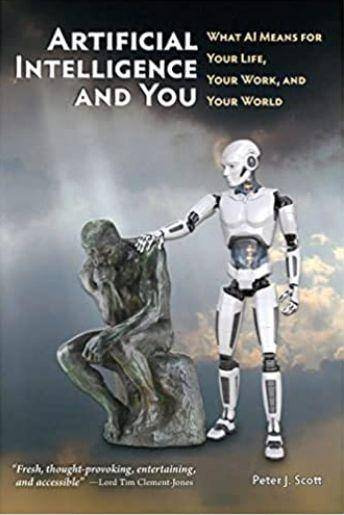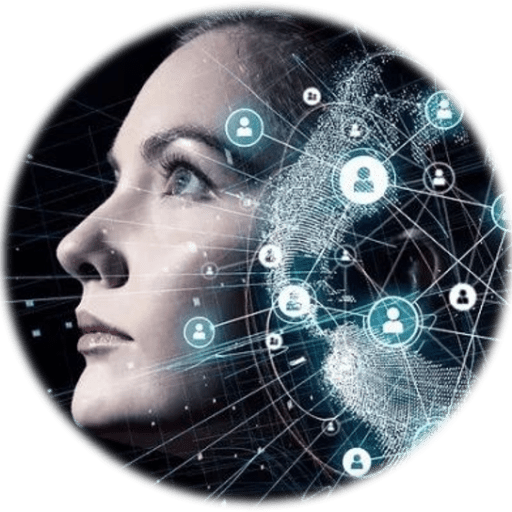London, 4 August 2022
Tony Czarnecki

Every time I read books on Artificial Intelligence, I always assess the content from two perspectives: what new I have learnt and how the views of the author differ from mine. That approach has been very helpful for me in writing several books on AI. However, Peter Scott’s book adds yet another dimension – the effectiveness of communicating, sometime quite complex ideas, to an average reader, so that he is not only better informed but, because of the impact of AI on all of us, also better prepared for the coming momentous changes. He has especially excelled in that area.
The book is addressed to a wider audience although some conclusions and suggestions that the author proposes would also be of interest to thought leaders in AI. Here are some examples:
- When discussing whether we should look at AI as ‘a good thing’ or ‘a bad thing’ he suggests considering it as a ‘big thing’ with its impact comparable but massively greater than a discovery of electricity. I agree with it entirely. There is nothing in the human history, which will have a greater impact on the future of our species than AI.
- The author frequently reminds us about how difficult it is to predict the pace of AI development, mentioning the case of AlphaGo and its next generation AlphaZero which taught the game itself in just 6 months and beating its predecessor 100:0. This is the big Unknown of AI, which partially explains the sluggishness of the world leaders to face this existential challenge seriously right now, who may be hoping that this problem will not arise while they are in the government.
- Another important observation Peter Scott makes is that “We have repeatedly discovered that tasks that we believed to be solidly in the clubhouse labelled HUMANS ONLY could also be performed by AI”. AI has already excelled humans in many domains such as image recognition, translation, or access to knowledge (when did you last time browsed Encyclopaedia?)
- And finally, he makes a statement, which re-enforces the earlier mentioned difficulty to predict the likely pace of AI advancement saying that artificial Intelligence works in an entirely different way than Human intelligence. Therefore, predicting when AI achieves human level intelligence measured by results may be futile.
Readers will appreciate a gradual and comprehensive introduction to key concepts related to AI such as neural networks. They are explained as far as possible in plain language, illustrated by hundreds of examples, making the understating of the terms and concepts easier. However, the author also introduces the reader to some of the challenges of making AI ‘a good thing’ such as the problem of AI control and especially of aligning AI goals with human values. Showing the multidimensionality of AI in a fairly easy way to understand by most people is probably the strongest feature of the book. However, the author does not avoid raising issues, which for most readers may be difficult to absorb, since they are simply mind blowing. Among this is a discourse on the nature of consciousness, and the big unknown whether AI, as a non-biological species, may one day become conscious.
Where the book might be improved is perhaps by adding short summaries at the end of each chapter, since sometimes the key message may be lost among many examples illustrating a given concept.
Most readers of this book will be familiar with the global warming challenge, whose serious effects we begin to experience. However, the biggest existential challenge our civilization faces, which will impact us sooner and far more than climate change, is the arrival of Artificial General Intelligence und its ultimate form – Superintelligence. This is what the author has so skilfully presented in this book, by addressing that subject in not too complex language. That is why I would recommend it not only to a wide range of readers of the popular science genre but especially to those who will be responsible for preparing our civilisation to coexisting with Superintelligence, especially politicians.
